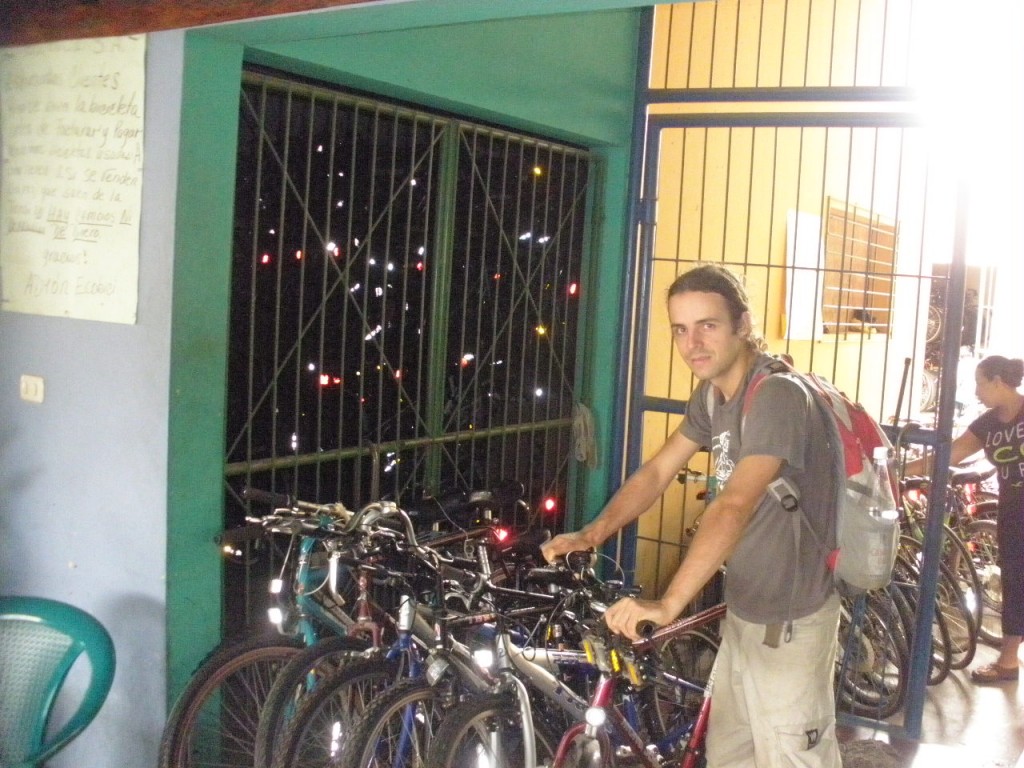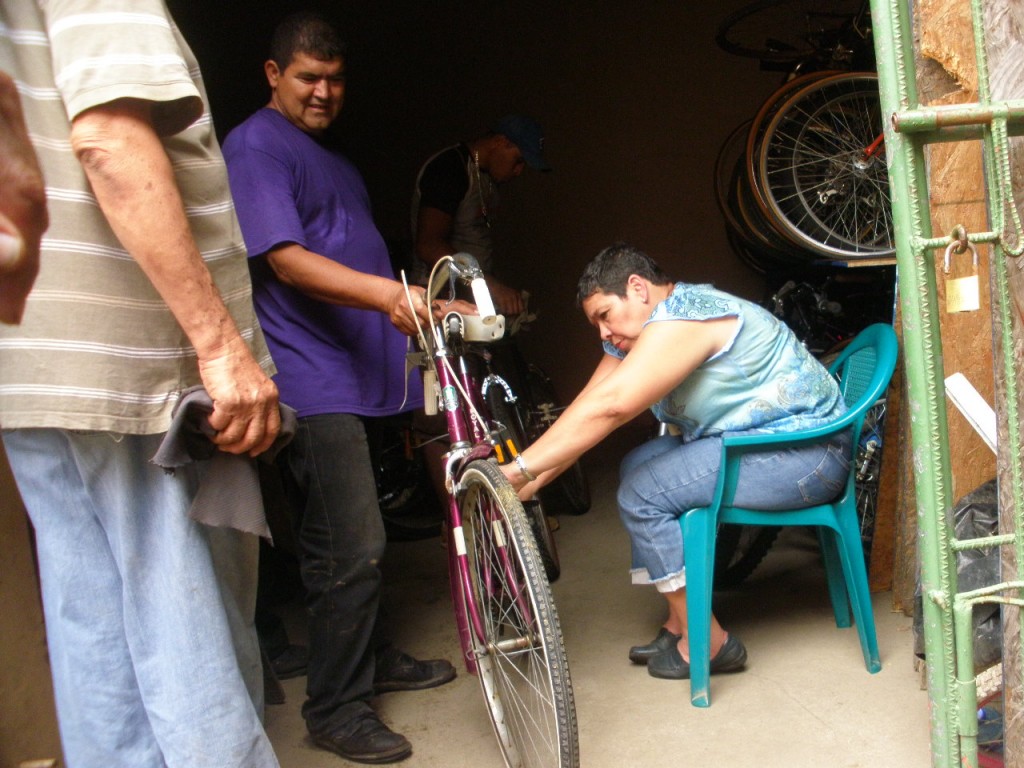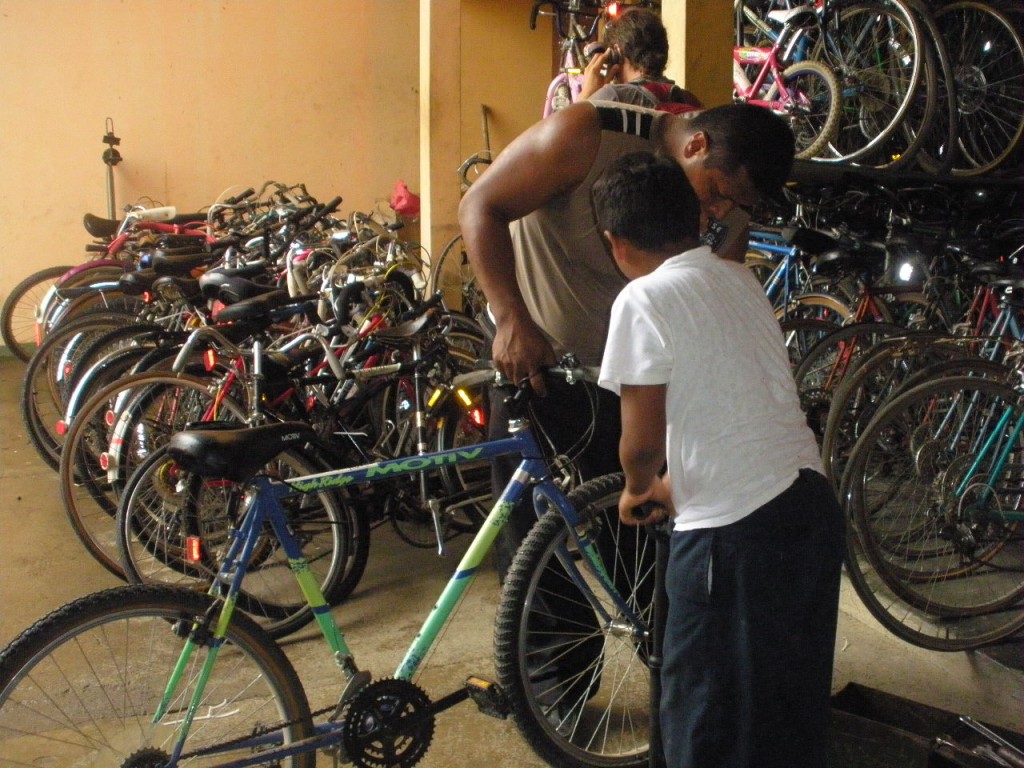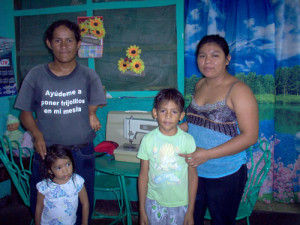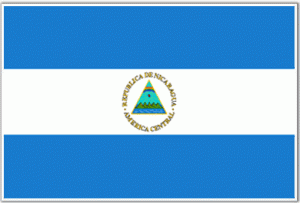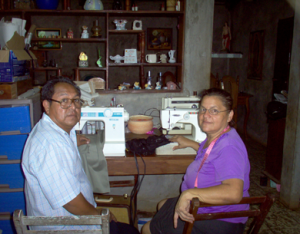
Juan Carlos and Migdalia Dávila, live in Diriamba, Carazo, Nicaragua, they are both 58 years old and have 1 son who is 11 years old. Until November of 2008 Juan Carlos worked as an office assistant for a private company in Jinotepe. Even though he had a steady job he worked as a tailor at night to make some extra money for his family. Since the help of the sewing machines from Pedals for Progress came 2 years ago, Juan Carlos and his wife Migdalia have been building a small side business so that if Juan Carlos lost his job they would have another source of income. So when he was told that he was no longer needed in his position they were ready. Today Juan Carlos and his family are able to make ends meet with their sewing. They sell dresses, blouses and men’s clothing. They are grateful to Pedals for Progress for the high quality yet affordable machines P4P provides in Nicaragua.
Category Archives: Nicaragua
Cycling Cowboys
by Patricia Hamill
Winter 2012 InGear
When asked to think about ranches and cowboys, many Americans picture John Wayne charging after rustlers or even James Stewart riding easily along, bell gently ringing as it swings from his saddle horn. Some think about modern ranchers using helicopters to move the herds and blocking off watering holes to force the animals (and local wildlife) to move to new sources of water and grazing. The first is not accurate, the second, disruptive and wasteful. But do we think at all about cowboys outside of North America? In fact, there are choices that ranchers and cowboys in Nicaragua make that are not only forward-looking, but directly related to American industry. No, this is not about where to get your next burger, this is about how the cowboys alleviate a concern that many a cowhand has had to ponder since the business of cattle came about: How do I do my job with the least expense to myself financially and physically?
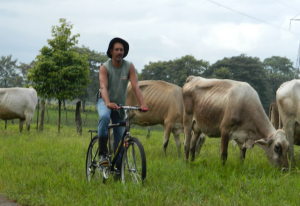
The answer, for some, is simple: Use a bicycle. This at first seems unrealistic. The amount of ground to be covered each day and the uneven terrain to navigate together make you think that this is not a good long-term answer. But, it is. And Javier Venegas is one of many who can attest to the practicality and financial pluses of replacing a horse with a bike.
The owners of large farms have regular need of cowboys out with the herds. They need men to move the cattle from pasture to pasture and to protect the cattle from being rustled by thieves and the poor who may think that one or two missing cattle won’t count to the owner. Traditionally, the cowboys rode around on horses all day—and some still do—but not Javier. Javier is a mountain bike rider and, on a daily basis, he herds a hundred head of cattle for the owners of a ranch named Plazuelas.
Work in the countryside begins at 5 a.m. and lasts until noon and, after a rest period, tasks are resumed for the afternoon. Now, not all work on a ranch requires use of a horse; but, even so, the horses can only be on the job for about 40 hours a week.
Just like many of the cowboys in America (in movies and real life) these men own their own horses—they are not provided to them. This means that part of their earnings goes back into feeding their animals, shoeing or trimming their feet, and any vet bills that may be necessary for treating injuries or for maintenance (worming, vaccinations, floating (filing) teeth, etc.). This can cost as much as $50 (U.S.) a week in Nicaragua and this is very expensive for a rural population that is quite poor. The bike, however, is always at the ready and is much cheaper to maintain. In fact, Javier is a bike lover, so he is fortunate to be able to ride his preferred method of transportation and get paid while doing it.
The first thought that came to me while writing this was that it seemed like a lot of extra physical effort would be needed to herd cattle with a bike. Professional trainers and competitive riders will attest that riding a horse is not a passive effort, but if most of the cowboys’ day is spent at the walk, with occasional trotting and cantering, they really don’t get much exercise. According to Javier, the bicycles are not difficult to maneuver and often offer easier access to some terrain than the horse. As well, many of the men prefer the extra exercise on the bikes and view cycling as a chance to become fit on the job. The only job the horse seems to do better than the bikes is move quite fast at sudden notice, but they can only maintain that for so long and this is not a regular need.
Overall, the trend in the Rivas area is toward eliminating the use of horses and purchasing mountain bikes from EcoBici instead. This is a much more cost-efficient decision for the cowboys of Nicaragua and certainly presents a much lighter economic and ecological footprint option than helicopter wrangling or disrupting the local wildlife habitats by blocking watering holes. Yet again, American bicycles have a multifaceted impact on a multitude of lives and lifestyles. Maybe some of our own cattlemen should read this newsletter.
Photos from EcoBici – Nicargua
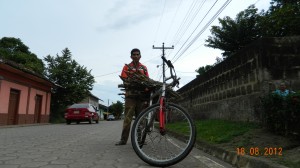
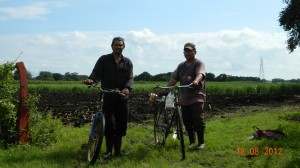
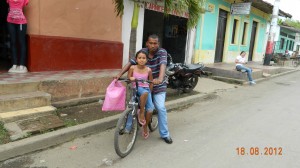
05/05/12 Pedals for Progress ships Rivas #50
Since a warm November day in 1991, we have shipped a whole lotta bikes to Rivas, Nicaragua. If there were a Rip van Winkle in Rivas, he would awake to a city he could not recognize. Old Rip would have never seen dedicated bicycle lanes along the Pan-American Highway with traffic lights for bicycles to cross the formerly dangerous highway. Bicycle cargo vehicles and bicycle taxis filling the streets with the vibrancy of a bustling economy. At the beginning and end of the school day, a giant torrent of students from all around the surrounding countryside streaming in to Rivas for their daily lessons at school.
Our partner, Ecobicicletas, proudly situated on the north side of the marketplace, is still supplying the community with a constant stream of newly arriving bicycles from New Jersey.
A lot has changed for the good in Rivas since 1991, and 21,000+ P4P bikes helped make that change happen. Check out the great trailer of this upcoming documentary, The Bicycle City (TheBicycleCityFilm.com).
A One-Woman Operation
InGear Fall 2005
Scarlet Bello, or Karla as she is more widely known, owns and runs EcoBicicletas in Rivas, Nicaragua. She opened her shop 3 years ago but her relationship with Pedals for Progress goes back at least 10 years. Karla began working with P4P’s partner Grupo Sofonias in Jinotepe, Nicaragua in 1997. Karla was the manager of the bicycle shop. As such she was in charge of everything from inventory, pricing to selling bicycles. Karla was able to create a viable business for Grupo Sofonias while selling quality bicycles to people in need of transportation.
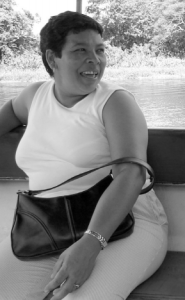
In addition to being a wife, mother of 2 children and working full time, Karla attended the University in Managua to receive her degree in Accounting. She wanted to get a better understanding of how to run a business from the inside out. She already had the practical know-how of running a business but wanted to get the academic training as well. Due to medical problems in 2002 Karla was unable to continue working for Grupo Sofonias. This is where she becomes an exception to the normal custom in Nicaragua. Once Karla had recovered and was able to work, she and her husband decided to open another bicycle shop in their home town of Rivas. For Karla the bicycle business is her lifeline. She explained to me that “As a woman over the age of 35 in Nicaragua, I am condemned to a life of unemployment in the professional sector, unless I work for myself.” For professional women in Latin American countries this is all too common. The job market caters only to single women under the age of 35.
Karla lives and breathes the bicycle business. She loves every aspect of her work. With her expressive face she explained all of her roles in EcoBicicletas. When a container of bicycles arrives in Rivas from Pedals for Progress, Karla must travel to Rivas (about 30km) daily for 10 days straight. The process of unloading, sorting and pricing the bikes is all overseen by Karla. Once the bikes are ready to sell, Karla keeps the warehouse and what she has sold.
She also prepares the accounting books for review by the company’s accountant. It is very difficult to fake the enthusiasm I saw in her face and the words she used to describe her business. What I most admire about Karla is that she is a business woman who understands market-driven prices and how to keep her operating costs down, but more importantly she is a very compassionate and trusting employer. “I treat my employees as if they are part of my family. I give them a bonus at the end of the year, buy them birthday presents, and even help some pay for their children to go to school. If I show them that I respect them, I will never have any problems in my shop.” Out of her 5 employees, 3 of them are single mothers who would also be subject to the same job market restrictions Karla was subject to when she returned to work after recovering from her medical condition. Since 2002 Karla has been able to sell around 1,500 bikes per year. EcoBicicletas does not even need to advertise their products; the people know when the new bikes arrive in Rivas. Due to her success in Rivas, Karla has opened a second shop in Nandaime, a smaller city than Rivas, but she is able to sell around 50 bikes a month there.
There has been somewhat of a phenomenon in Nandaime with the bicycle repair and parts businesses. They have seen almost twice the amount of customers since EcoBicicletas has come to town. The positive economic effects of EcoBicicletas can be seen in many ways. What does Karla enjoy most about owning EcoBicicletas? “When I see a mother who does not have a lot of money come to my store and she is able to buy a quality bike for her child, one that she knows will last and let her child go to school, that is the best part. To see her expression of pride that she was able to get this bicycle, that is why I do this.” Karla also takes great pride in the sewing machines that she donates to people and organizations in need. She has been to known to give some to the “House of the Woman” in Nandaime, so now they can hold courses at no cost to women who want to learn how to sew. There are several under-funded technical high schools around Rivas that have benefited from the sewing machines as well. This is her way of giving back to her community, her social responsibility.
As an overseas partner of Pedals for Progress, Karla has been able to accomplish many goals that women in most developing countries are not able to do. She is her own boss, trusting employer and teacher. Karla’s story is one of self-empowerment through something as simple as selling bikes. Karla has been able to create an independent life for herself and her family and helped her community by partnering with Pedals for Progress. EcoBicicletas is a definite success story for Pedals for Progress, but this success would not have been possible without Karla’s careful direction and dedication.
Nicaragua #32 Arrives in Rivas
Nicaragua Sewing Machine Program
In the developing world, in the hands of someone who knows how to use one, a sewing machine means instant income. The following two profiles are fairly typical examples of how sewing machines help people in the developing world, whether in Latin America, Africa, or Eastern Europe.
 Juan Carlos and Migdalia Dávila
Juan Carlos and Migdalia Dávila
For years, Juan Carlos Dávila worked by day as a receptionist at a private institution in Jinotepe. His wife, Migdalia, is a skilled seamstress. At night, he helped her with the sewing to earn extra money for their family.
His receptionist salary was barely enough for them and their 11-year-old son to get by on. As their tailoring business grew, it was their hope that one day they could come to depend on it as their sole income. But a second sewing machine, a new one, was far too costly.
In November 2008, Juan Carlos was suddenly laid off from his receptionist job. Today, he and Migdalia survive because they can both sew, and because they were able to get a second sewing machine from Pedals for Progress through our partner organization Ecobicicletas Rivas. Today at their tailor shop, they make men’s suits, women’s dresses, curtains, table linens, and they are currently searching for an employee or two to expand their business.
Elvis Cruz is 25 years old and from Managua, Nicaragua. He was born disabled; both of his arms are severely deformed. While this provided certain challenges, it hasn’t kept Elvis from working, playing baseball, or otherwise living a full life. Married with two young children, Elvis works as a flagman directing traffic in Managua. But his income wasn’t enough to adequately support his family. After making a public appeal on a local TV show for the opportunity to earn more money, his wife received a sewing machine from one of our partners. A talented seamstress, now she works from their home earning extra income for their family.
Nicaragua
Johana and the Learning by Tutorial System
by Karla Santana
Spring 2010 InGear
Johana del Carmen Sanchez Gonzalez is 14 years old. She lives in the rural community of El Higuero, Nicargua, some 16 km from the capital Managua, where she lives and works on her parents’ farm. Out of six children, she is the only one still attending school. She graduated from elementary school last year, but could no longer attend public school due to her responsibilities on the farm. However, thanks to Pedals for Progress and The Fabretto Center, she has been able to continue her education. The Fabretto Center is an organization dedicated to helping impoverished children and their families in underserved communities to break the cycle of poverty and reach their full potential through programs that promote nutrition, health, education, community, and character development.
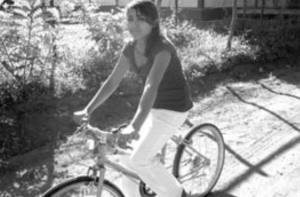
For over 50 years they have been partnering with Nicaraguan communities, both urban and rural, to provide hope and a better future for their children. One such program is the Learning by Tutorial System (LTS), which promotes rural development by providing students with the technical training that they will need to improve agricultural practices for their families and their communities.
Essentially, LTS is a vocational high school program with great emphasis placed on the development of technical skills. LTS students are being equipped with the tools and knowledge to implement small-scale agriculturally productive projects to generate increased income. It is designed to meet the constraints of rural life. For example, the use of lightweight workbooks rather than texts lessens the load of students who walk great distances to class. Course topics are relevant to rural concerns, such as animal husbandry for the study of science. Practical teaching occurs through projects like small-plot farming that benefit the local community. Since this will eventually generate new economic opportunities, LTS also helps to reduce the migration of young people from the rural areas to the already over-crowded cities. The effort to keep up with her studies has not been easy for Johana, however.
During harvest season she doesn’t attend class because she has to help on her family’s farm. This means she has to put in that much more time and effort later to catch up on her studies. In addition, she lives eight kilometers from The Fabretto Center, a distance that takes five hours every day to walk there and back. “Even though she has adult responsibilities, at such a young age, she is one of the top students in her class” says Johana’s tutor. Currently in her first year of LTS, she participates in all the Fabretto activities and has showed a lot of interest in her studies. Her ambition is to become educated enough to reach a position in life from which she will able to better the lives of her family and other people in need. Already, she uses her experience in agriculture to not only help teachers with school gardens but also to encourage her classmates to learn more about it. Johana’s is the type of situation in which bicycles from Pedals for Progress can take a hand. Thanks to our donors, we’ve been collecting and shipping bikes to partners in Nicaragua for 19 years, over 32,000 bicycles in total. Despite the distance, Johana wished to persist. It would not have been practical, however, had she not had access to the utility of the wheel. With a bicycle from Pedals for Progress, Johana has been able to continue her studies and keep her dream of helping others alive. “All this time in Fabretto,” she says, “has helped me not only to grow as a human being but also to learn new things and put into practice what I have learned with my parents. I love sharing my knowledge with my classmates. I am currently learning how to use a computer. I really enjoy it.”
Letter from Happy Customers in Rivas, Nicaragua
|

